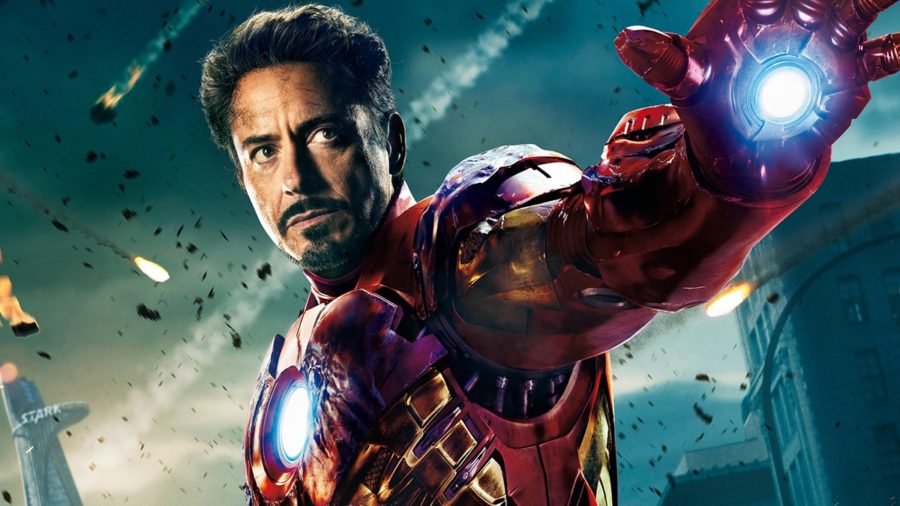Marvel Movies are Destroying the Film Industry
Decades ago, no one would have expected the pop culture zeitgeist that we have today: superhero movies. Flash back to as late as the 1980s, and most superheroes were seen as nerdy or immature. But in 2019, this isn’t the case. “Avengers: Endgame™” is the highest-grossing film of all time; the other three “Avengers” films are in the top 10. Other Marvel™ movies, such as “Black Panther™,” “Captain America: Civil War™” and “Captain Marvel™” are in the top 25. These films are pop culture phenomenons that showcase impressive special effects and A-list actors — and they’re ruining the film industry.
It’s clear from simply looking at the release dates of Marvel™ films that they’re coming out at a staggering rate. Since 2013, there have been at least two per year, and since 2017, there have been at least three. This relentless release schedule makes one thing apparent — Marvel™ films are made for the sole purpose of generating profit, not to tell a great story, a focus that has negatively impacted global pop culture as well as film as an art form.
It’s true that the most innovative and thought-provoking films aren’t typically extravagant, high-grossing studio movies, but in the past, this was common. The highest-grossing film of 1972 was Francis Ford Coppola’s “The Godfather™,” which is widely considered one of the greatest films of all time. Other high-grossing movies of this time such as “Jaws™,” “Rocky™,” and “Back to the Future™” weren’t part of an established franchise either. But now? In the past 15 years, only two of the the single highest-grossing films have not been part of major film franchises. This is a far cry from decades ago, when franchise films were the exception, not the rule. This franchise-based approach sacrifices original storylines, high-quality cinematography and grounded performances, instead incentivizing the pumping out of films to maximize profits based solely on brand recognition and nostalgia.
On a purely cinematic level, Marvel™ movies are nothing noteworthy. They generally have bland cinematography, decent-at-best action scenes and extremely predictable plots: hero meets villain, something goes wrong, hero beats villain, all with little tension throughout. Most characters show either predictable growth or none at all (such as a cold loner learning the “power of friendship!”), and the characters tend to be one-dimensional.
An even harsher effect on the industry is the overall “Marvelification” of the rest of Hollywood. Namely, the frequent releases of dominating franchises leads to absolutely nothing but the same couple of series churning out most of the movies. Take Star Wars™: before 2014 there were only six Star Wars™ films. These films saw a sparse release schedule as well, with films in each trilogy coming out every three years, and a 16-year gap between trilogies. Now, Star Wars™ movies are a yearly occurrence.
When asked if a greater volume of Star Wars™ content is good for the series, AP© World History teacher and Star Wars™ superfan Steven Burr said, “I think once a year was ideal and I think if they have it where they mix it up between a trilogy arc with independent, separate series like ‘Solo™’ or ‘Rogue One™,’ I think that would’ve been good.” Mr. Burr does not, however, believe that Disney is releasing more Star Wars™ content just due to the success of the Marvel Cinematic Universe™ (MCU). He stated: “I just think they’re a company that’s trying to make profits and… the more they can put out there, the more profit they think they’ll make. So… if they didn’t own the MCU they’d still be trying to pump out as many Star Wars™ [movies] as they could.” Evidently, fans of these franchises aren’t overly upset about franchise over-saturation.
But what does that say for those who are not fans of these franchises? Obviously, no one is forcing anyone to actually sit down and watch these movies, but it’s true that the films are a somewhat inescapable part of pop culture. Nearly every big movie these days is part of a franchise, with hugely successful original films becoming more and more rare. Marvel™ isn’t introducing new filmmaking techniques that are directly causing bland cinematography and generic action scenes in other franchises — they’ve been doing what all other blockbusters have been doing for years.
The real impact of Marvel is felt through its release model and its imitators, with Star Wars™, DC Comics™ and more. The Marvel™ films in a vacuum are fine. What is not fine is the death of, at least in popular cinema, originality.












